Originally published by Alanna Smith for The Globe and Mail, 06/16/2022
Alberta’s future depends on people’s willingness to embrace change, according to a group of business leaders who have charted a 10-year strategy to transform the province into a global powerhouse with homegrown talent after years of economic stagnation.
The Business Council of Alberta is expected to release its Define the Decade report on Thursday after robust engagement with business executives, educators, Indigenous elders, government and non-profit groups, in addition to reviewing feedback from residents young and old, in rural and urban areas. People were asked: What does a good life in Alberta look like in the next decade?
“From all corners of the province, all walks of life, regardless of age, gender, political belief, education level, they all said essentially the same thing,” said Adam Legge, president of the business council. “We want Alberta to be a place of belonging. We want Alberta to be a place of opportunity. We want Alberta to be a place of solutions.”
The report outlines three global issuesit says the province is uniquely positioned to address relating to food security, clean energy demands, and health and medical care advancements. It also emphasizes the need for cross-sector collaboration to drive innovation and job growth while ensuring all Albertans, but in particular women, racialized, Indigenous and gender diverse people, have equal opportunity to thrive.
Mr. Legge said Albertans are ready to “turn the page” after difficult chapters in the province’s history. For many years, the economy was under the crushing grip of an oil recession and faced costly natural disasters, including floods and fires. The COVID-19 pandemic further gutted its finances, briefly sending oil prices into the negative in 2020. Gas prices have since risen to multiyear highs, bringing the boom back to Alberta, but the sector remains volatile.
The United Conservative government has said that it is working to diversify the economy and that areas such as tech, film and petrochemical production are showing early signs of success as it works to reduce dependence on the fossil fuels sector.
Anila Lee Yuen, a member of the project’s advisory committee and chief executive officer of the Calgary Centre for Newcomers, said Alberta must also embrace diversity, equity and inclusion to be prosperous again. Marginalized communities are too often under-represented in business leadership roles or overlooked for jobs owing to systemic discrimination and unconscious bias, she said.
Newcomers to Canada will be more inclined to settle in Alberta if their talents are recognized and optimized, she added. One of the recommendations is to create “more effective entrepreneurship pathways with particular emphasis on programs for Indigenous peoples, under-represented populations and new Albertans.”
Enhancing people’s quality of life is a recurring theme in the report. One element of that, it outlines, is advancing reconciliation efforts with Indigenous communities, specifically by bridging gaps in medical services and incorporating Indigenous knowledge into economic efforts. The report also said access to affordable, secure and clean energy is a key tenet of people’s well-being.
Because of Alberta’s resource base and expertise in energy development, the 10-year plan states that the province could become a leading supplier of net-zero oil and gas, the world’s largest exporter of hydrogen, and a global hub for the development of new energy sources and climate technologies.









